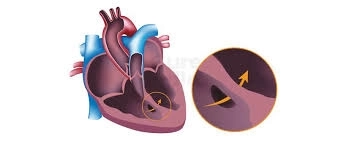
Ventricular Septal Defect Closure via Catheter with Prof. Dr. Hany Mahmoud Adel
Published on: 2025-06-26 | Written by: Professor Dr. Hani Mahmoud Adel, Professor of Pediatric Cardiology
Ventricular Septal Defect (VSD) is one of the most common congenital heart defects in children and can lead to complications if not treated promptly. With modern medical advancements, it is now possible to close the defect without surgery—using cardiac catheterization—a procedure expertly performed by Professor Dr. Hany Mahmoud Adel, Consultant of Pediatric Cardiology and Interventional Catheterization.
What Is a Ventricular Septal Defect?
A VSD is an abnormal opening between the right and left ventricles of the heart, causing blood to mix and increasing pressure on the heart and lungs.
Professor Dr. Hany Mahmoud Adel explains that while some small VSDs close on their own, others require medical intervention.
When Is Catheter-Based Closure Recommended?
According to Professor Dr. Hany Mahmoud Adel, catheter-based closure is suitable in the following situations:
-
Moderate to large-sized VSDs
-
Noticeable symptoms like breathing difficulty or poor growth
-
Elevated pulmonary artery pressure
-
Impaired heart function due to excessive blood flow through the defect
Advantages of Catheterization Over Open Surgery:
As Professor Dr. Hany Mahmoud Adel highlights, catheter-based closure offers many benefits:
-
No need for chest opening or stopping the heart
-
Shorter hospital stays
-
Faster recovery with less pain
-
Lower risk of infection or bleeding
Success Rates and Possible Complications:
Statistics from advanced catheterization centers, including the practice of Professor Dr. Hany Mahmoud Adel, show success rates exceeding 95% in properly selected cases.
Complications are rare and may include arrhythmia or minor leakage, both of which are typically well-managed.
Conclusion:
Catheter-based VSD closure is a safe and effective option for select pediatric cases. Professor Dr. Hany Mahmoud Adel is a pioneer in performing this precise procedure, with extensive experience in treating congenital heart diseases using the latest interventional techniques.

